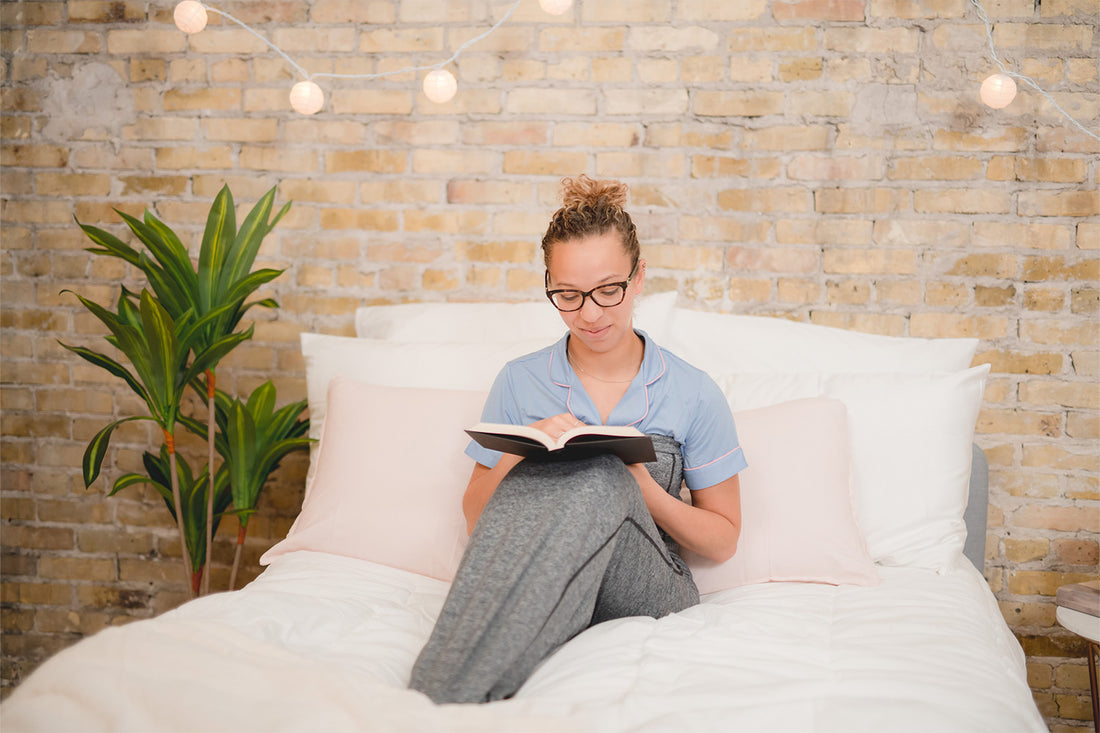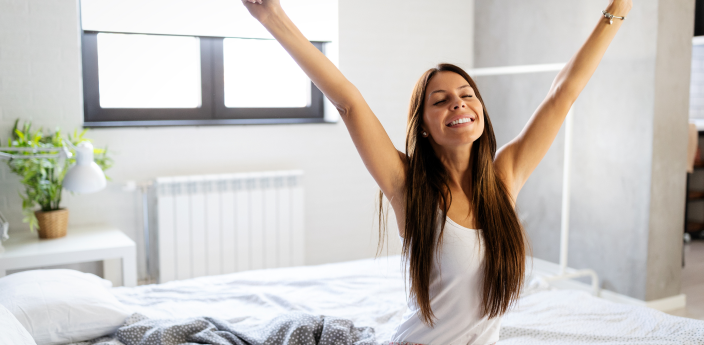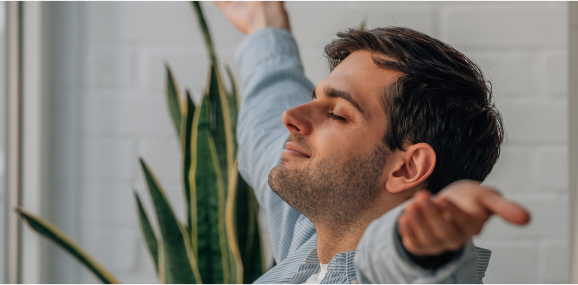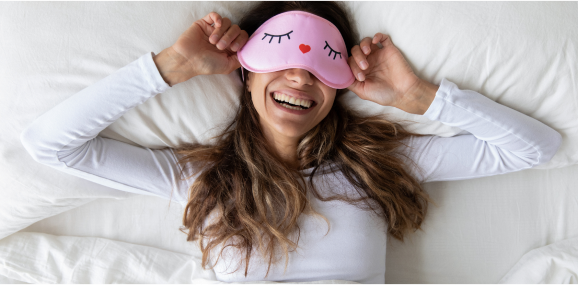We live in a fast-paced, two-day delivery type of world. We want things to happen now, as soon as we press the button — some call it instant gratification, and it can lead to tension, insomnia, and stress when we don’t get what we want right away.
But there is a downside to living life at breakneck speed. What goes up must come down. The world may be moving faster than ever, but people are also more tired than ever.
It doesn’t matter how quickly or slowly life seems to move, quality sleep is not optional. But, in a world where there is no time to waste, is there a way to fall asleep fast?
Yes, thankfully there are some ways to fall asleep fast and feel well-rested in the mornings, but the preparations start the night before.
Understanding Your Sleep
Sleep is a health imperative, it is essential for a healthy body and mind. But sleep can be elusive. We’ve all experienced nights of staring into a dark room or at an alarm clock, watching the minutes tick away.
On the flip side, we had those moments when we were practically asleep as our heads were falling towards the pillow.
According to the data released by the Center for Disease Control (CDC), 35.2 percent of all adults in the United States get less than the recommended seven hours of sleep per night.
Also, a 2020 sleep poll by the National Sleep Foundation found that nearly half of all Americans report feeling sleepy during the day between three to seven days per week.
So, the numbers aren’t great. But sleep is a complex process. Falling asleep doesn’t happen by accident, it is all part of the sleep/wake cycle.
The Sleep Cycle and Stages of Sleep
Sleep latency and duration are both important elements to overall sleep health. Sleep latency refers to the amount of time it takes to fall asleep, whereas duration is the actual time slept — sleep that is free from disruptions. But, underlying it all is the sleep cycle.
Sleep is not a uniform process. During the night, a person progresses through the sleep cycle between four to six times on average. This cycle consists of four sleep stages.
While there are four stages of sleep, there are really only two types of sleep: Rapid eye movement (REM) and non-rapid eye movement (NREM). The amount of time spent in each cycle changes as the night goes along and can be affected by various factors.
The first three stages of the sleep cycle are NREM. During these stages, the body transitions from wakefulness to deeper and deeper sleep. Breathing, heart rate, and brain activity decreases through these stages and eye movement comes to a halt.
Stage 3 is referred to as slow-wave sleep or deep sleep. It typically lasts between 20 and 40 minutes. This is when the most restorative sleep occurs. The final stage, Stage 4, is the only REM stage of the sleep cycle, the stage where dreaming occurs.
When Falling Asleep is Difficult
There are numerous things that could make falling asleep fast near impossible. There are also things that could make the zzzs come quicker but end up disrupting your sleep quality later in the night.
Take alcohol for example — while it does have some sedative effects, it has been shown to disrupt sleep later in the sleep cycle.
Poor sleep quality is typically the result of poor sleep hygiene. This would include your habits and routines at bedtime.
Here are some other things that could make falling asleep difficult:
- Stress and anxiety can keep sleep at bay.
- Eating large meals before bed.
- Alcohol and nicotine too close to bedtime.
- Caffeine or energy drinks too close to bedtime; including coffee, teas, and soda.
- Irregular sleep schedule or patterns.
- Intense exercise before bed.
- Too much exposure to electronic devices like laptops or phones before bed, which can impact the hormone melatonin and disrupt your body’s internal clock.
How To Fall Asleep Fast
At the end of the day, the amount of time it takes to fall asleep is going to be different for everyone. For some people, falling asleep quickly seems to come naturally, and maybe it does.
However, if that isn’t you, there are some things you can try to help get you into dreamland faster and have better quality sleep. Let’s take a look.
A Good Night’s Sleep Starts in the Daytime
Our bodies naturally follow a 24-hour cycle. The physical, mental, and behavioral changes that follow this biological clock are known as circadian rhythms. The most important aspect of sleep is the sleep-wake cycle.
This biological process is affected by environmental factors, such as light exposure. During the day, exposure to bright light makes us feel active and awake. At night, these feelings wane as light diminishes. This is why we start feeling tired when it gets dark.
So, here’s the tip: Don’t disrupt your circadian rhythm.
Make sure you’re soaking up vitamin D and sunlight in the daytime and dimming the lights in the evening hours, especially before bed, for good sleep hygiene. This helps maintain a healthy sleep-wake cycle.
Establish Good Bedtime Habits
Good sleep, and the ability to fall asleep fast, starts with having good bedtime routines in place. It is the nightly ritual before bed. Believe it or not, our bodies enjoy predictability.
So, going to sleep and waking up at the same time every day is a great place to start in terms of routine building.
Also, prep the bedroom prior to bed and set a relaxing scene. Keep your room cool, dark, and free from distracting noises. Find ways to unwind about 30 minutes prior to bed. Find something that transports you to calmness, such a deep muscle relaxation, essential oils, or a white noise machine.
Building good bedtime habits means kicking bad habits to the curb, many of which we discussed above.
Here’s one of the most important tips: Put the electronics down or turn them off.
The blue light that is emitted from phones and tablets are not your friend when you’re looking to fall asleep fast.
Kick Stress and Anxiety Out of Bed
Stress and anxiety are one of the biggest determining factors between falling asleep fast or a night spent staring at the ceiling. It is easy to let the stress of the day (or the stress of tomorrow) weigh us down at night.
But stress and anxiety can lead to sleep deprivation if left unchecked. It is important to find a destressing or relaxation technique that works for you. Some choose aromatherapy with chamomile or lavender oil, others opt for relaxing music, progressive muscle relaxation, mindfulness, visualization, or meditation.
If anxiety continues to be a problem at bedtime, the Sleep Pod could help.
Using Deep Touch Pressure Stimulation (DTPS), a therapy shown to reduce feelings of anxiety, the Sleep Pod provides gentle compression throughout the night.
It helps aid the relaxation process and is designed with better sleep in mind.
More Tips To Help You Fall Asleep Fast
- Keep your bed for sleeping only – It is important to train your brain to know that when your head hits the pillow, it means lights out.
- Avoid daytime naps – Yes, daytime naps can be rejuvenating, especially if you’re exhausted. But they do you no favors come bedtime, and it’s best to avoid them.
- Turn the TV off, read a book instead – As stated, the blue light from electronics can disrupt the sleep-wake cycle. So, if you must be entertained, read a book before bed, perhaps a dry drama and not a thriller.
- Take a warm bath or shower – Skip counting sheep and count the suds. Seriously, studies have shown that a shower or warm bath before bed can help improve sleep.
- Stop clock-watching – The clock can be a potent enemy when it comes to falling asleep fast. It’s distracting for many and can actually contribute to anxiety as you watch minutes tick away. Turn it around or turn it off.
Conclusion
Falling asleep fast comes naturally to some. While sleep latency does vary, it is more of an art form than a special gift.
Typically, poor sleep hygiene habits are the culprit behind sleep issues. Caffeine before bed, irregular sleep patterns, and stress are just a few examples.
At the end of the day, falling asleep fast involves some prep work, like a supportive mattress, a new breathing method, or progressively relaxing different parts of your body, which could make the difference between a restful night or a sleepy morning.
Sources:
Data and Statistics - Sleep and Sleep Disorders | CDC
Americans Feel Sleepy 3 Days a Week, With Impacts on Activities, Mood & Acuity | Sleep Foundation
Disturbed Sleep and Its Relationship to Alcohol Use | NIH
The Color of the Light Affects the Circadian Rhythms | NIOSH

































500,000+ happy customers